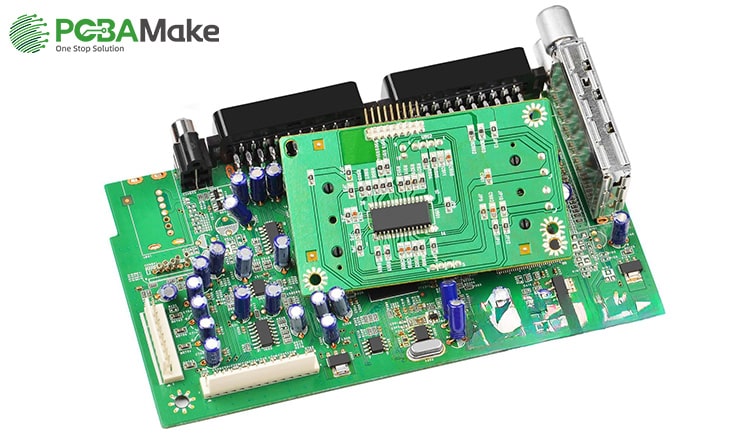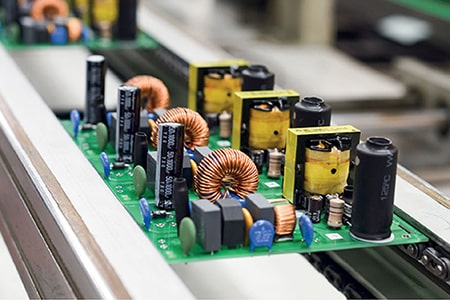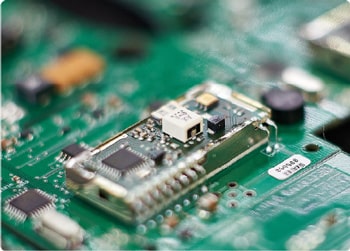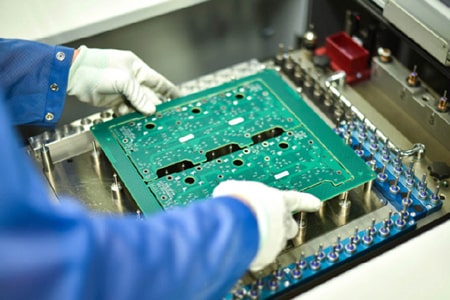Advantages of Backplane PCB
Backplane PCB has many significant advantages in complex electronic systems.
High reliability
Sturdy design: Backplane PCB usually adopts sturdy design and high-quality materials, which can withstand long-term high-load operation.
Stable connection: Through reliable connectors and precise design, the connection between each sub-board is ensured to be stable and not easy to loosen or fall off.
High-density connection
Multi-layer design: Backplane PCB can be designed into a multi-layer structure to accommodate a large number of signal lines and connectors to meet the needs of complex systems.
High space utilization: Achieving high-density electrical connections in a limited space helps the miniaturization and integration of the system.

Modular design
Easy to expand: Through standardized slots and interfaces, each sub-board can be plugged in and out at will, which is convenient for system upgrades and expansions.
Simplified maintenance: Modular design makes it easier to repair and replace sub-boards and reduce system downtime.
Good signal integrity
Reduced interference: Advanced backplane PCB design can effectively manage signal paths, reduce signal interference and noise, and ensure the integrity and accuracy of signal transmission.
High-bandwidth transmission: Support high-bandwidth data transmission to meet the needs of modern high-speed communication and computing.
Power distribution optimization
Unified management: The backplane PCB can uniformly manage and distribute power to ensure that each sub-board has a stable power supply.
Reduce power noise: Reduce power noise through reasonable layout and design, and improve the overall stability and performance of the system.
Simplify system wiring
Reduce wiring complexity: The backplane PCB centralizes the connections of multiple sub-boards, simplifies the wiring of the system, and reduces the number and complexity of external connection lines.
Improve system reliability: Reducing the use of external connection lines not only improves the aesthetics of the system, but also reduces the possibility of connection failures.
Backplane PCBs have become an indispensable and important part of modern complex electronic systems with their advantages such as high reliability, high-density connection, modular design, excellent signal integrity and optimized power distribution. They play a key role in fields such as servers, data centers, communication equipment and high-performance computers, and significantly improve the overall performance and stability of the system.







